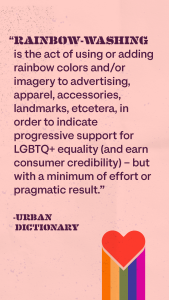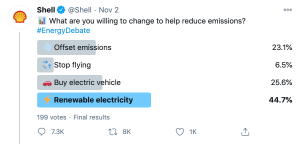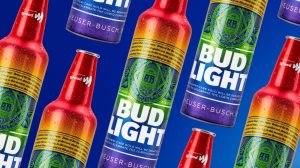by John Nelson
We’re on the last day of Pride Month, and we’ve seen some amazing displays throughout the country and world of comradery and solidarity for those identifying as LGBTQIAA2S+. For all of June big cities like Seattle, New York, and Los Angeles have been swimming in Pride-inspired events like parades, concerts, drag shows, bike rides, runs, and much more. Hell, even rural America is getting in on the fun in celebrating this unique and important segment of our population.
Attendees of such events are observed smiling from ear to ear: Smiling for no longer hiding who they are, feeling comfortable in their own skin. And smiling from non-identifiers too, in a state of pure bliss, as they witness those around them feel accepted, loved, and finally understood. These events, or Pride Month in general, showcase a truly remarkable display of humanity’s ability to overcome deeply rooted bigotry.
But what happens when the music stops, when the parade floats are disassembled, and the focus is shifted away from the LGBTQIAA2S+ community? As the month comes to an end, like Thanksgiving décor in early December, the rainbow gets drawered. And in an orchestrated display, company after company alters their logo back to the original, hanging up the rainbow flag graphic until next year.
In our yearly spin around the sun cycle, holidays and celebrations come and go. And rainbow doesn’t have to be worn every day (props to you if you choose to keep rockin’ it though). Decorations get moved back into storage, but values, morals, and reasons for celebrating remain present and transparent…sometimes.
Though retiring rainbows after Pride Month is normal and common, many of those same rainbow logo-altering companies are prime disingenuous examples of never caring about LGBTQIAA2S+ issues to begin with. Or worse, some are regular and consistent promoters or funders of anti-LGBTQ+ initiatives.
What is Rainbow Washing?

Maybe you’ve heard of greenwashing? When certain companies or organizations use deceptive marketing to “present confusing or misleading claims that lack concrete information about the actual environmental impacts of whatever’s being advertised.” (Morteza Abolhasani, et al. ‘Greenwashing: how ads get you to think brands are greener than they are – and how to avoid falling for it’).
We have ample examples of greenwashing in the US, but perhaps none better than the behemoth fossil fuel companies. Here’s an example of a tweet from Shell that garnered recent attention from consumers and politicians:

Shell, a multi-national fossil fuel company, one of the leading contributors of global emissions, asking their consumers “what are you willing to change to help reduce emissions?”, is a factitiously obvious deflection of responsibility in response to global warming. And of course, doing so while taxpayers subsidize their product in the form of roads.
So what’s the connection? The point is just to say that greenwashing is simply just a form of marketing (albeit, deceitful marketing). And the same goes with rainbow washing. This dishonest advertising is merely just companies cashing in on popular support.
That’s right! Environmental and LGBTQIAA2S+ issues are quite popular, and only becoming more so over time. After polling 1,000 U.S. adults on the issue, Bloomberg reports that “71% of respondents said they support the legal right to same-sex marriage, beating last year’s record by one percentage point.” (Ella Ceron, ‘More Americans Support Same-Sex Marriage Than Ever’).
With this in mind, many corporations often configure advertisement to this popular support while simultaneously supporting measures that directly oppose these values. As it relates to beer, let’s take Budweiser for example. For years Budweiser has rolled out rainbow cans, bottles, and ads to commemorate Pride Month.

According to Budweiser, they will “donate $1 to GLAAD (Gay and Lesbian Alliance Against Defamation), up to $150,000 to assist in their efforts of creating a world where everyone can live the life they love.” (Anheuser-Busch, ‘Bud Light Celebrates World Pride with Rainbow-Inspired Bottles Benefitting GLAAD’).
This is all well and good, but it’s Budweiser’s support behind closed doors which is worrisome. Corporate Accountability Action (an organization aimed at holding corporations more accountable) “used data compiled from the National Institute on Money in Politics to show that Anheuser-Busch contributed more than $35,000 to 29 legislators it described as anti-LGBTQIAA2S between 2015 and 2020.” (CBS News, ‘Anheuser-Busch’s political donations has Stonewall Inn banning some beers’).
Corporate deception like this is nothing new and indeed often frustrating for many of us consumers. However, there may be a silvery rainbow lining to this disingenuous marketing, aside from still bringing attention to the issue. That being, when companies engage in rainbow washing, keen LGBTQIAA2S+ activists are quick to put pressure on these organizations by pointing out hypocrisy and demanding real change.
In describing what “real change” may look like in a piece for CBC, Aimee Langer states that real change “means that we, queer and straight people alike, need to demand that the pandering be done in good faith.” (Langer, ‘’Rainbow capitalism’ is pandering, pure and simple, but it can still help drive social change’).
Langer goes on to give the following examples of what she considers “real change” for the LGBTQIAA2S+ community:
- Demanding workplace policies to develop inclusive work environments;
- Hiring LGBTQ+ people at all levels, including high-level corporate positions;
- Planning and running community events that promote LGBTQ+ interests, arts, and businesses;
- Creating partnership and mentorship initiatives with queer businesses;
- Providing internships through universities and high schools;
- And creating capital grant programs for queer entrepreneurs.
All the More Reason to Support Craft Beer
The craft brewing industry is unique in many ways, but perhaps most notably in its overwhelming ability to avoid corporate consolidation. Yes, many craft breweries ‘sell out’ to larger conglomerates, but by and large, the sector is made up of small, independent operations. Aside from the restaurant industry, America really doesn’t have too many other industry examples that avoid monopolization to this degree.
And because of that independence, these breweries are not tied down to shareholders, or appeasing political donors. As such, many of them are not hesitant to speak their minds on social issues; We’ve seen recent examples of support for Black Lives Matter, Ukraine, and most certainly for the LGBTQIAA2S+ community.
With anti-trans rhetoric and legislation gaining steam, opposition to these bigoted forces is more crucial now than ever. Corporations understand the power that consumers hold in enacting real change, merely in their purchasing decisions. Now that Pride is winding down, it is imperative that we remember and raise a glass to the breweries and establishments that support LGBTQIAA2S+ year-round and recognize their never-ending effort in achieving inclusivity.
Sources
Content:
- ‘’Rednecks 4 Rainbows’: Surge in small-town Prides helps LGBTQ folks find home. Is it enough?’
- ‘Greenwashing: how ads get you to think brands are greener than they are – and how to avoid falling for it’
- ‘More Americans Support Same-Sex Marriage Than Ever’
- ‘Bud Light Celebrates World Pride with Rainbow-Inspired Bottles Benefitting GLAAD’
- ‘Anheuser-Busch’s political donations has Stonewall Inn banning some beers’
- ‘’Rainbow capitalism’ is pandering, pure and simple, but it can still help drive social change’





